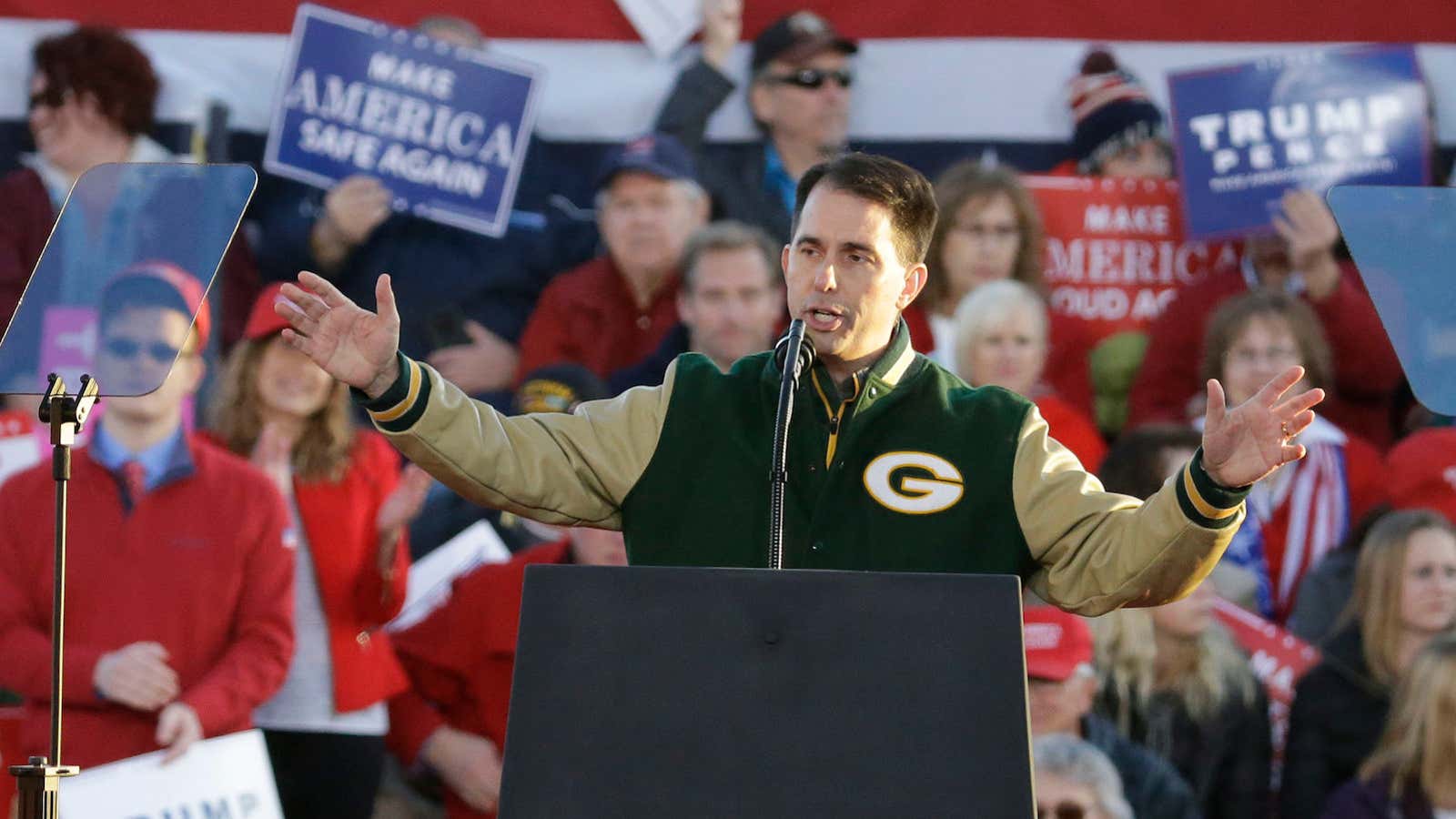During his two terms as governor of Wisconsin, Republican Scott Walker professed to be an advocate for education even as he cracked down on the teachers’ union, leading to lower pay, reduced benefits, and higher staff turnover in schools. On Tuesday’s midterms, Wisconsin voters ousted Walker in favor of very different kind of education advocate: Tony Evers, a former teacher and Wisconsin’s superintendent of public instruction.
Evers, who also served as a high-school principal before becoming superintendent, ran on promises to increase funding for schools and give teachers more bargaining rights, as well as to reform prisons, restrict guns, and expand access to health care. He very narrowly defeated Walker, who cut taxes, expanded school vouchers, made Wisconsin a right-to-work state, signed laws allowing people to carry concealed weapons, and most famously, revoked many public workers’ collective bargaining rights. (That prompted calls for Walker’s removal and a recall election in 2012, which he won handily.)
“It’s time for a change, folks,” Evers said Tuesday evening. ”I will be focused on solving problems, not on picking political fights.”
While the victory gives some power to Wisconsin Democrats, Republicans still control the state legislature and could well stymie much of Evers’ agenda. Mandela Barnes, Evers’ running mate and a former state representative, will become the state’s first African-American lieutenant governor.
“We are bringing education back to the state of Wisconsin,” Barnes said, according to Wisconsin’s Journal Sentinal. “We are bringing science back to the state of Wisconsin and we will bring equality back to the state of Wisconsin.”
Evers won by the smallest of margins, the AP said—a little over 1 percentage point. With more than 2.6 million votes cast and 99 percent of precincts reporting, Evers was ahead by about 30,000 votes.
Walker has emerged as a national lightning rod for Democrats because of his disdain for unions. He’s also been a figurehead for Republicans who saw him as playing a significant role in helping to push the state to the political right. In the 2016 presidential election, Wisconsin went to president Donald Trump. According to the New York Times, before then, no Republican had won Wisconsin in a presidential race since 1984.
Ultimately, Evers campaigned on the argument that years of conservative policies had left Wisconsin’s education system in tatters and its infrastructure in disrepair, while also providing inadequate health-care coverage for state residents. He also backed universal background checks and regulating military-style weapons, and said he hoped to reduce the prison population by half through treatment and rehabilitation. Walker, whom the Journal Sentinel said has never visited a prison, characterized Evers’ ideas as dangerous.
Evers did not invoke vitriol in his bid for the state’s top job. According to the Journal Sentinel, he “often deployed his criticism of Walker in a low-key fashion and the two at times found ways to work together before Evers mounted his bid for governor last year.” That said, Evers sounded rather wry when Politico asked him this summer about Walkers’ efforts to position himself as the “pro-education governor.”
“It borders on a joke,” Evers told Politico. “The proof is in the pudding. … I don’t think many people believe him.”
